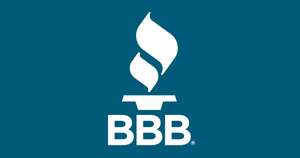Straight Talk: How to avoid scams while moving

Moving is always a stressful project. Throw in the threat of a moving scam, and things get even worse. Before hiring a moving company, careful research is necessary to avoid falling victim to a moving scam. These scams run the gamut from missing items, massive price hikes, and in some cases, goods being held hostage for additional payment.
In 2023 alone, 1.5 million inquiries on BBB.org were made about moving companies, and 5,918 complaints were filed with BBB against moving companies. Consumers who reported moving scams to BBB in 2023 lost a median of $350.
How moving scams work
With the amount of moving activity during spring and summer, the potential of being a victim of a moving scam also increases. There are several versions of moving scams reported to BBB every year, including:
• No show: Consumers receive a quote and pay a deposit, but the movers never show up.
• Upcharge: Consumers are charged on their credit cards for more money than the moving company originally quoted for their services.
• Extra fees: The moving company provides a quote based on expected weight, and after loading the truck, they inform the consumer that the load is over the expected weight and an additional fee must be paid. Most of the time, the fee is significantly more expensive per pound, sometimes as much as double the original estimate.
• Stolen items: The movers provide an estimate, arrive on time, and load your belongings onto a truck. However, when the truck arrives at its destination, either your belongings are gone, or the company requires the consumer to pay an additional fee to deliver them, holding the possessions hostage.
One consumer reported their experience of a moving scam to BBB Scam Tracker: “[Name redacted] moving company [name redacted] charged my credit card $505 more dollars then quote he promised of $1595. His workers also stole belongings of mine by not emptying the truck and drove away with them. They complained my $50 each tip was not enough so [name redacted] decided to charge me extra knowing full well his workers kept my belongings too. This is also in addition to items that I let them keep from the previous apartment.”
Ways to avoid becoming a victim of a moving scam
• Watch out for warning signs. If there is no address or information about a mover’s registration or insurance on their website, it is a sign that it may not possess the proper policies to protect a consumer’s belongings. Additionally, if the mover uses a rented truck or offers an estimate over the phone prior to or instead of conducting an on-site inspection, it may not be a legitimate business. Another warning is if phone calls are answered with a generic “movers” rather than a company name.
• Be wary of unusual requests and extra costs. If a mover asks for a large or full payment in advance, that may indicate a fraudulent business. If an individual’s possessions are being held hostage for additional payment not agreed upon when the contract was signed, contact BBB or local law enforcement for help.
• Get everything in writing. When moving between states, check BBB.org or contact your local BBB to check if the business is reputable. In the U.S., all interstate moving companies require an identification number issued by the Federal Motor Carrier Safety Administration (FMCSA) and a U.S. Department of Transportation (DOT) number. Make sure to read the terms and conditions of your moving contract carefully, the limits of liability, and any disclaimers. The pickup and expected delivery date should be easily identified.
• Keep an inventory of your belongings. BBB recommends consumers label the boxes their belongings are packed into and what is in each box. In general, movers are not liable for lost or damaged contents in customer-packed boxes unless there is provable negligence on the mover's part. Taking photos of the contents before packing is a great way to prove if damages were incurred during the moving process.
• Ask questions. Do not be afraid to ask questions. If the moving company cannot or will not answer your questions, look for another company. Trust matters when hiring a moving company.
FOR MORE INFORMATION – For more moving tips, like how to choose the best option for your move, see BBB's moving HQ at BBB.org/Moving. Find a list of BBB Accredited moving companies near you at BBB.org/near-me. To report a moving scam, visit BBB.org/ScamTracker. To learn how to protect yourself from scams, go to BBB.org/AvoidScams.
For BBB INFORMATION – Visit BBB.org or call us at 330-454-9401 to look up a business, file a complaint, write a customer review, read tips, find our events, follow us on social media, and more!
This article originally appeared on The Repository: Five ways to avoid falling for a moving scam
